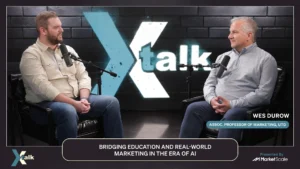How Cash Recycling Is Saving Time, Money, and Improving Security
The true cost of managing cash for a business is hard to pin down, especially as a business owner. It’s a less quantifiable cost; while retailers incur a cost to accept debit and credit cards as currency, there’s an inherent cost of labor to accepting cash as well. Simplifying this process for business owners may come in the form of cash recycling technology, which is is “reducing the cost of money” in many unexpected ways.
On today’s Software and Technology Podcast episode, host Sean Heath sat down with Vik Devjee, vice president of CIMA America to discuss ways retailers can reduce the cost of managing cash through cash recycling solutions.
Rockwall-based Tech Data Systems partners with CIMA America, a global provider of cash handling solutions for banking, retail, and hospitality industries, specifically cash recycling systems for use in the retail space.
“Retailers today experience a lot of pain around managing cash in a typical retail store environment, such as a grocery store, department store, or quick service restaurant,” Devjee said. “Handling cash is a labor-intensive process.”
In retail environments, staff may spend a lot of time in a cash office manually managing cash, employ loss prevention teams to pinpoint missing cash, or use cash in transit companies to transport cash from the premises. Both these soft and hard costs of handling cash are chief reasons why retailers are turning to automated cash recycling systems.
“It’s reducing the cost of money,” Devjee said.
Devjee discussed how the dwindling use of cash is affecting the industry in the U.S. and abroad, why the U.S. leads the world in people who don’t use banks, and why partners such as Tech Data Systems use CIMA America solutions for cash handling worldwide.
For the latest news, videos, and podcasts in the Software & Electronics Industry, be sure to subscribe to our industry publication.
Follow us on social media for the latest updates in B2B!
Twitter – @TechMKSL
Facebook – facebook.com/marketscale
LinkedIn – linkedin.com/company/marketscale








